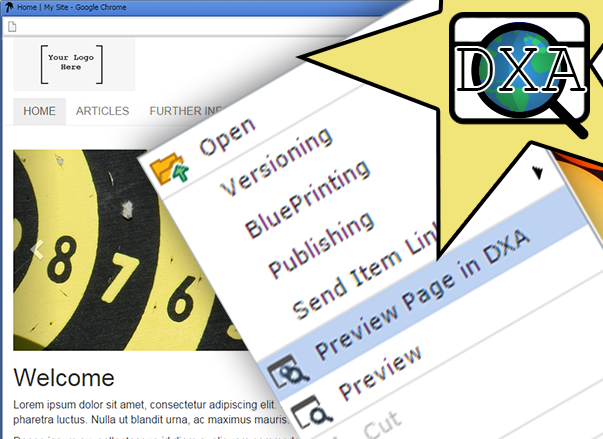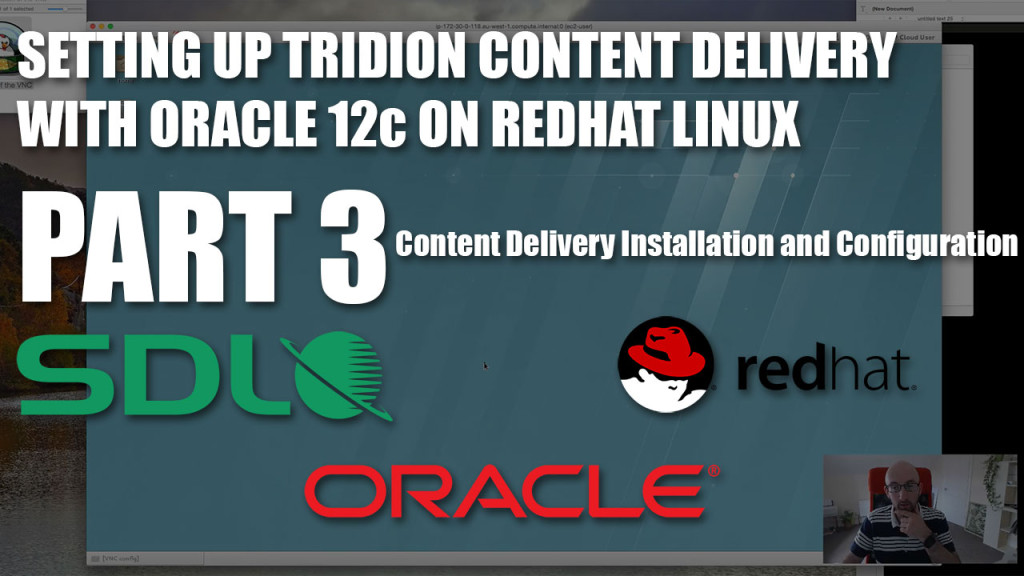 An event, in any computer system, is an interruption in the current process. The computer is busy doing what it should be doing, and then something happens to stop it and send it in a different direction. In old systems this was limited to the user clicking a keyboard key or a mouse button. Now, with much more complex systems, it can include state changes, network events, new data, and nearly everything else. Continue reading
An event, in any computer system, is an interruption in the current process. The computer is busy doing what it should be doing, and then something happens to stop it and send it in a different direction. In old systems this was limited to the user clicking a keyboard key or a mouse button. Now, with much more complex systems, it can include state changes, network events, new data, and nearly everything else. Continue reading
Tridion DXA – Blueprinting Options
Thinking of updating the default DXA blueprinting structure? I’ve outlined some of the common scenarios to help consider how to best structure your DXA implementation.
Alchemy Plugin Configuration
As a general rule, installing an Alchemy plugin is a simple one click process, outlined at the Alchemy Webstore. This opens up Tridion to all kinds of configuration by people who would have found the DLLs, XMLs and config files ordinarily associated with Tridion customization off-putting.
But wait! What if you really like configuration and don’t feel like you’ve accomplished anything until you’ve had to update an XML or two? Well, it turns out that Alchemy will still meet your needs, weirdo. You see, some plugins still require configuration, even if it is quite simple. Take DXA Page Preview or Where Used Plus for example. Both plugins include references to settings in their a4t.xml file. This file will always contain a plugin’s configuration settings and will always be found at
%TRIDION_HOME%\web\Alchemy\Plugins\%PLUGIN_NAME%\a4t.xml
So, if you ever find a reference to a plugin’s settings and want to know just what you can configure for a given plugin, check out it’s a4t.xml. Most often it won’t have anything you need to think about, but sometimes you’ll find some important settings there. If you’re developing a plugin and want to know more about using the a4t.xml file, check out the Alchemy documentation for details.
Alchemy and the Dangers of JQuery Scope
While working on a plugin with Alchemy recently, I noticed something helpful: my popup window automatically inherited the Tridion CSS and JS. This is especially great if, like me, you want to make a popup look like Tridion. However, it did raise one concern. GUI extensions often rely heavily on JavaScript, and if, like me, you’re a Tridion developer who dabbles in JS you might not be that familiar with JavaScript variable scope. There is a tonne of information available online on this subject, but I wanted to bring attention to it in the context of Tridion and Alchemy.
Introducing My First Alchemy Plugin, WhereUsedPlus
Recently at Content Bloom we’ve been competing with each other to see who can build the best Alchemy Plugin in their spare time. Harald Hoffelinck entered first with his exciting Google Analytics plugin. Then Rob Morrow came with the Theme Manager, which you’ll definitely want if you spend all day staring at Tridion and need a change of view (or for lots of other reasons). Next, Mark Williams released the DXA Preview plugin, combining two of the hottest Tridion technologies right now in DXA and Alchemy. Best of all, even more exciting plugins are on the way from this little contest, so keep your eye on the Alchemy Webstore and here on Tridion Developer to see what comes next. Continue reading
Alchemy Plugin: DXA Page Preview

The Alchemy DXA Page Preview plugin allows you to preview a DXA page inside the CME without publishing the page to the content delivery server.
Tridion Deployer Error: Could not load type ‘System.ServiceModel.Activation.HttpModule’
Hoping this blog will help you guys if you receive the same error I encountered today whilst configuring the Tridion 2013 SP1 deployer as a .Net application.
Automating Alchemy Plugin Uploads in Visual Studio
Anyone building a plugin for Alchemy4Tridion is familiar with the repeated steps of:  Building the project, alt-tabbing to the CME Alchemy page, uninstalling the plugin, alt tabbing to your build directory, moving your hand to the mouse, dragging the *.a4t to the plugin window, yaawwwwnnn, ctrl-tabbing to the CME Content Explorer, F5ing the content. After the billionth time of doing this you yearn for something quicker!
Content Delivery on Redhat Linux with Oracle 12c – Part 3
This is the third in a three part series on setting up Tridion Content Delivery on Redhat Linux with an Oracle 12c database.
View part one of that describes the RHEL installation and part two that details the Oracle database installation process.
An Introduction to Theme Manager, My First Alchemy Plugin

This is John’s car. Seemed relevant.
I’ll let the video do most of the talking (yeah, I did a video walkthrough of the basic functionality), but the basic premise is this: on a whim (and a challenge from John), I set about creating an Alchemy plugin from scratch. Prior to this my experience with UI extensions was minimal, but Alex and John have been hooting for weeks that developing an Alchemy plugin is about a thousand times easier than creating one from scratch. So I accepted, and wrote a theme manager that allows for previewing, installing, and all sorts of other shenanigans… and a (mostly) complete theme… in less than a week.



